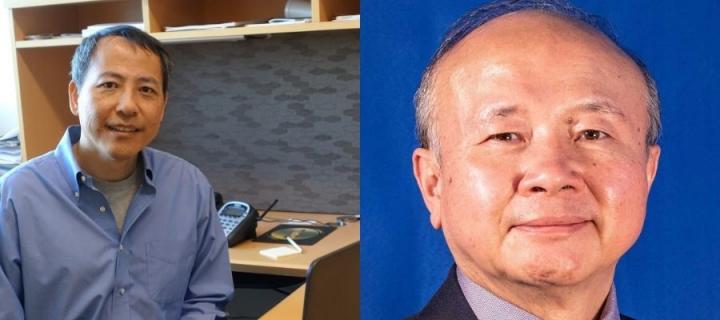Business model would share sensor data

Credit: UT Arlington
Sensors are everywhere, collecting data in nearly every part of society and growing continuously as individuals, companies and agencies add more.
A pair of computer scientists at The University of Texas at Arlington is working to create a framework for businesses that would encourage the owners of existing sensors to share their data through the cloud, reducing the cost for everyone.
Hong Jiang, professor and chair of UTA’s Computer Science and Engineering Department, and computer science Professor Hao Che have received a three-year, $499,658 grant from the National Science Foundation for their research. Under their sensing-as-a-service model, users could pay to gain access to data from existing sensors through sensing edge nodes–computers that act as end-user portals in computing clusters–with sensor owners voluntarily making the data available in exchange for a share of the subscription payments.
“With the proliferation of Internet of Things with diverse sensing capabilities, the proposed sensing infrastructure could be used by many entities and reduce the cost of sensing,” Che said. “Previously, single parties had to purchase and deploy devices that only they used, which was very expensive.”
The concept of sensing-as-a-service isn’t new, but Jiang and Che’s model could be deployable as a business model, allowing a company to invest in technology and benefit from democratized use. Different stakeholders buying in and participating would allow flexibility and preserve the anonymity of the sensor owners.
The model relies on providing incentives for data holders to participate, but Jiang is confident those incentives are achievable.
“As a user, I’d pay a certain amount to get what I want, which could cost more or less depending on the amount or type of data,” Jiang said. “Our framework is designed to guarantee that if you pay for a certain level of service, we’ll deliver it. Given the proper incentives, people could deposit sensing data into a local node to be shared in the cloud, and then the data becomes a commodity that has value depending on type, precision and time.”
Che and Jiang received a $1.05 million grant in 2017 to determine how best to meet the diverse quality-of-experience requirements of individual users while allowing for optimized and fair computing and networking resource-sharing among users for data center applications.
They also received a $799,950 grant in 2016 with computer science Professor Jeff Lei to create a model that allows mapping of user service-level objectives into precise computing resource requirements at individual computing servers.
###
– Written by Jeremy Agor, College of Engineering
Media Contact
Herb Booth
[email protected]
Original Source
https:/




